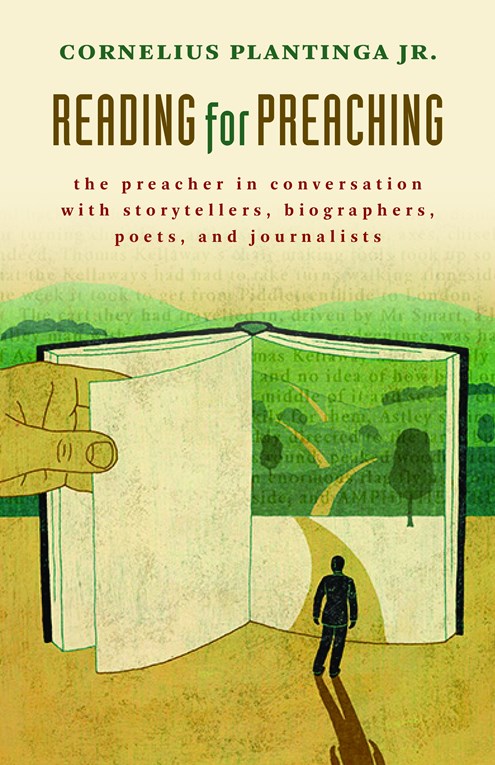Neil Plantinga: Reading for Preaching
 Cornelius Plantinga Jr., Reading for Preaching: The Preacher in Conversation with Storytellers, Biographers, Poets, and Journalists (Eerdmans Publishing Company, 2013), 133 pages.
Cornelius Plantinga Jr., Reading for Preaching: The Preacher in Conversation with Storytellers, Biographers, Poets, and Journalists (Eerdmans Publishing Company, 2013), 133 pages.
“There is no end to the writing of books” says the Preacher of Ecclesiastes; the same can be said about the writing of books about preaching.
Every year countless books are published on the subject of preaching. The preacher who is in the market for fresh editions will face the exciting task of which ones to choose.
Realizing that her preaching skills need to be sharpened, the pastor wonders whether she should purchase one of the classics that she has never read or take a chance on a recently published edition.
A slim book that she should consider as she contemplates the great responsibility that she has with preaching the Word of God is Cornelius Plantinga Jr.’s Reading for Preaching, subtitled the preacher in conversation with storytellers, biographers, poets, and journalists.
Reading wise writers is not recreation, it’s part of the preacher’s preparation to preach.
Listed as one of the top ten best books for preachers for 2013 by Preaching Magazine, this a different type of a preaching book. http://www.preaching.com/resources/articles/11707451?page=10
Unlike the typical preaching text, there are no diagrams, outlines, or sermon illustrations. The reader will, however, come away with an insatiable urge to read and read some more.
Since reading is a very important part of the minister’s spiritual and intellectual growth and preachers are always looking for fresh new ideas for sermons and Bible studies, Plantinga advocates general reading to support ministry, believing that “a preacher is extremely likely to benefit from a program of general reading.”
To support his thesis, Plantinga mentions such diverse writers as Calvin, Nabokov, Orwell, Updike, and even Anne Lamott!
He also encourages a weekly visit to the website Arts and Letters Daily to “find out what the best journalists have been saying.”
Realizing the importance of wisdom needed in every area of preaching, Plantinga devotes three chapters on the subject—Whatever You Get, Get Wisdom; Wisdom on the Variousness of Life; and Wisdom on Sin and Grace.
Some notable pieces of advice from these chapters are:
“I recommend a reading program for preachers for lots of reasons, but chiefly because it will tend to make the preacher wise. It will give…substance” (73).
“God is great and God is good, but God is also elusive and unpredictable, and the preacher’s reading can help him see this.” (99).
“The wise preacher sticks with his reading program to become wise not only about the variousness of life, but also about some of the wonders within it. Naiveté is often the child of ignorance, but wonder is often the child of imagination” (102-103).
And from the interview listed above, “Reading wise writers is not recreation, it’s part of the preacher’s preparation to preach.”
This book is a page turner that reads like a novel; it leaves you hungry for more of the story. It will motive you to read and read some more. You will find yourself returning to it for motivation and inspiration.
Plantinga provides a selected reading list, which he states was chosen for “Imaginative Reading for Creative Preaching” Seminars which he hosted.
The list contains about 50 books and magazine articles of varying subjects—mostly secular—which will be appreciated by the reader. Book lovers, however, may be disappointed that the list is not longer.
Plantinga’s contribution is a welcome addition to any preacher’s library.
Reviewed by Larry Russi
Publisher’s page: http://www.eerdmans.com/Products/7077/reading-for-preaching.aspx
Preview: https://books.google.com/books/about/Reading_for_Preaching.html?id=TbC8AAAAQBAJ


